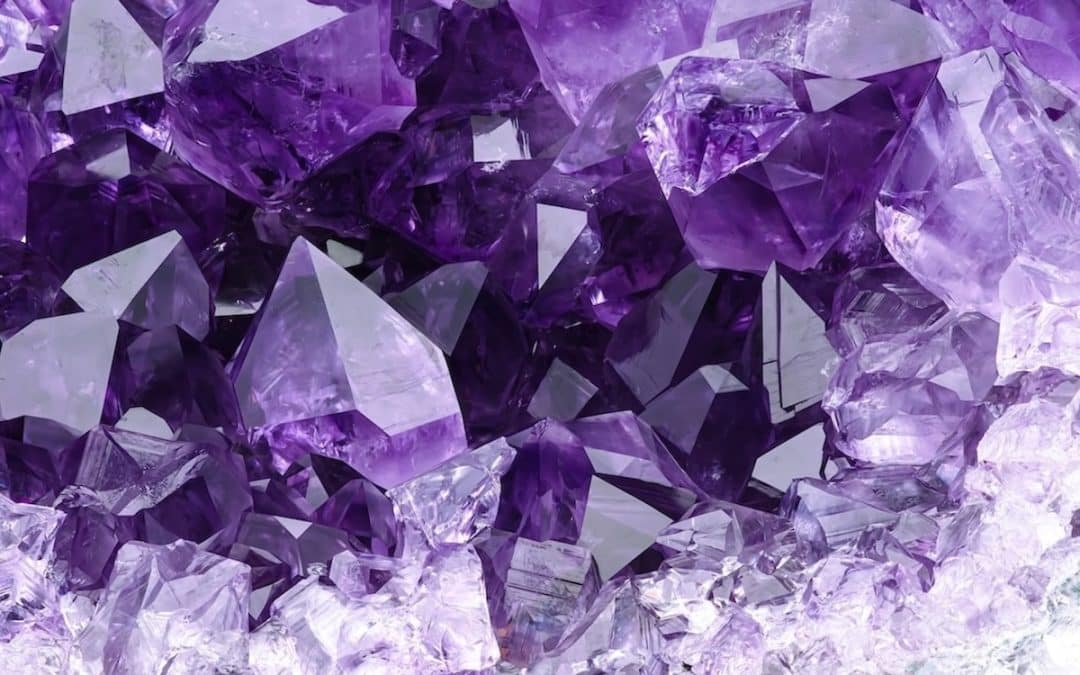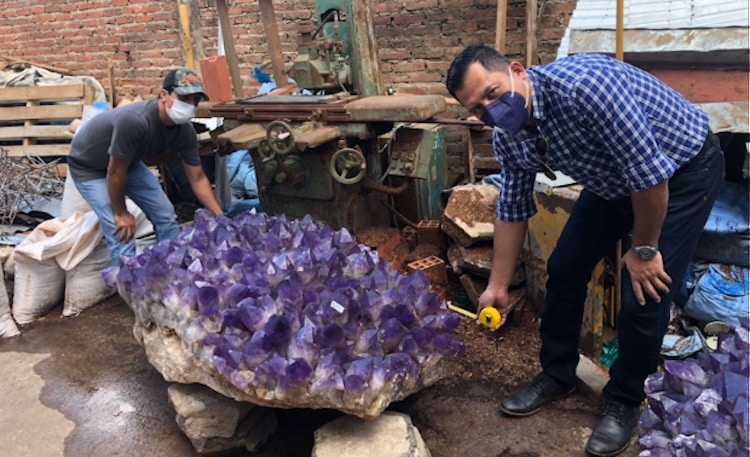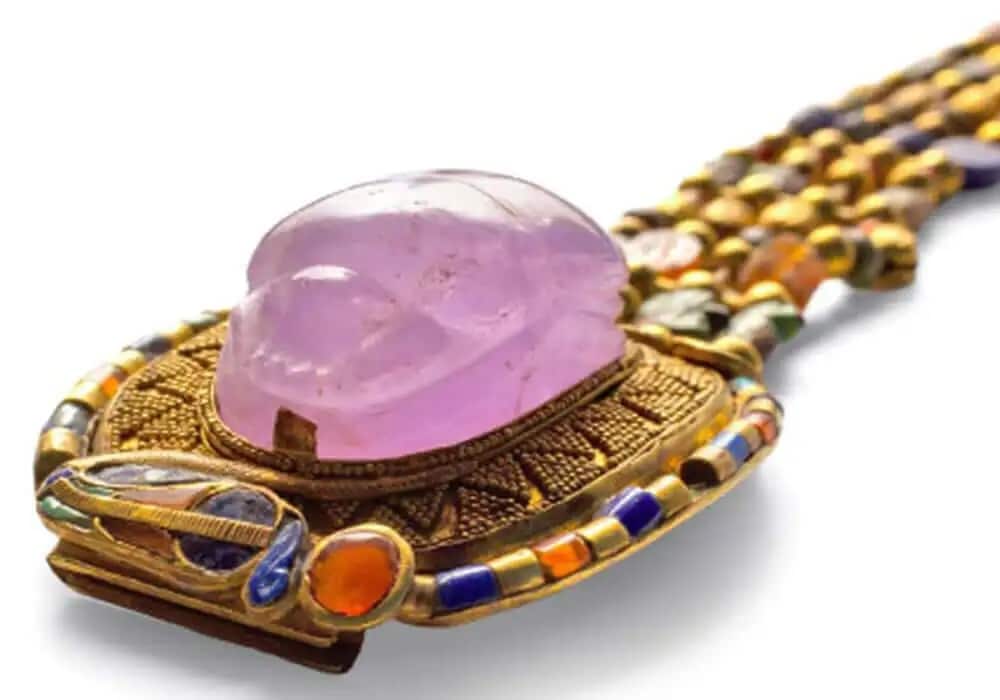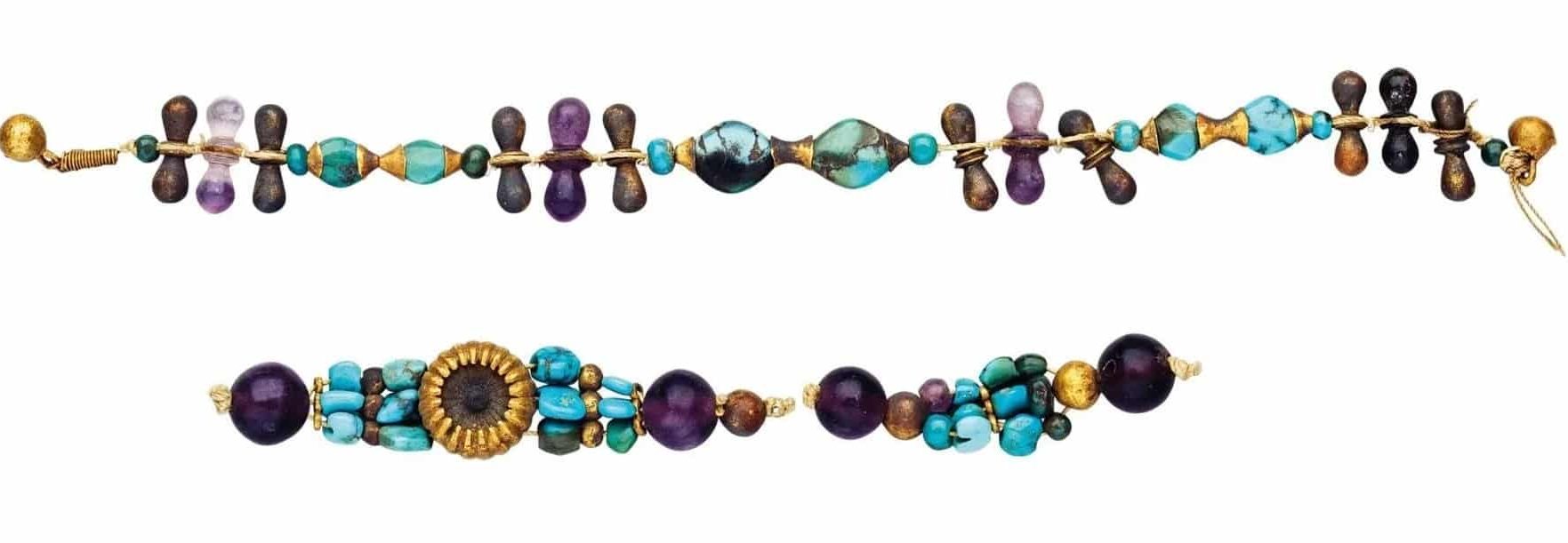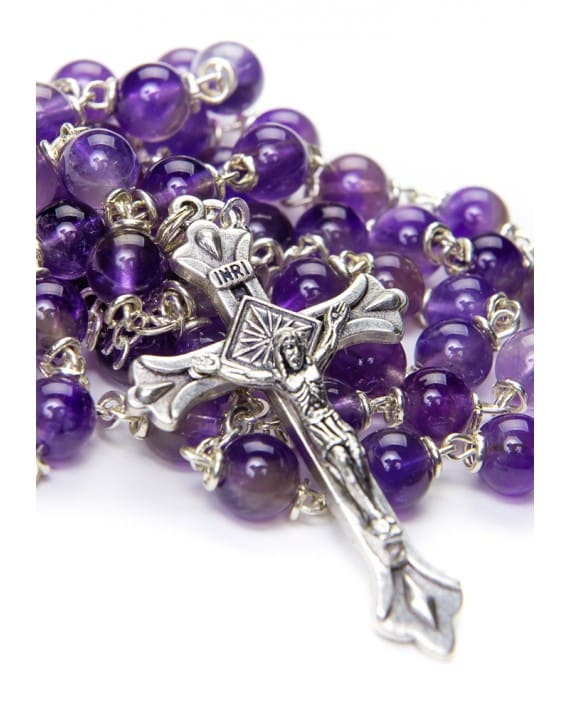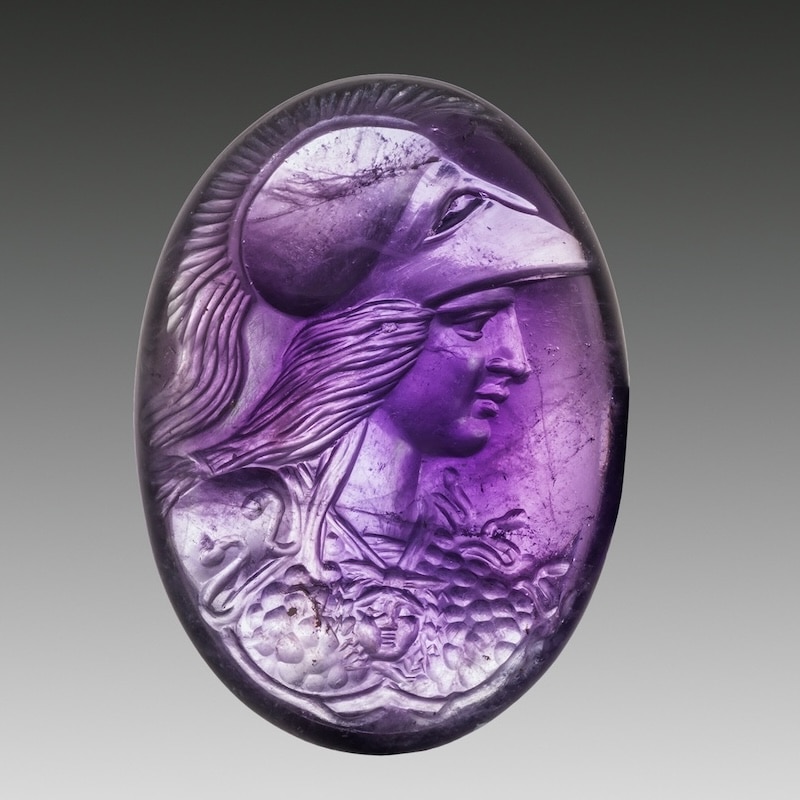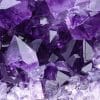Find Tranquility and Balance with Amethyst Crystals
Amethyst crystals have been captivating people for thousands of years, not only for the status that amethyst brought when worn, but for its mystical qualities as well.
I’ve always been fascinated with the physical properties of things. For me, keeping one foot in the physical world is crucial to understanding how some of the myths came to be – proving in many cases that “Reality IS Magic” and “Magic IS Reality”.
Read on to find out more about the reality and magic of amethyst throughout history.
The Physical Properties of Amethyst
Amethyst crystals are part of the “Quartz Crystal” family. Amethyst crystals in particular, form in hollow cavities (bubbles) inside volcanic rocks when highly concentrated liquid silica flows through them that also contains the elements of both manganese and iron.
As the fluids cool and harden, a shell-like structure is created on the outside with the crystals growing inside, resulting in a geode.
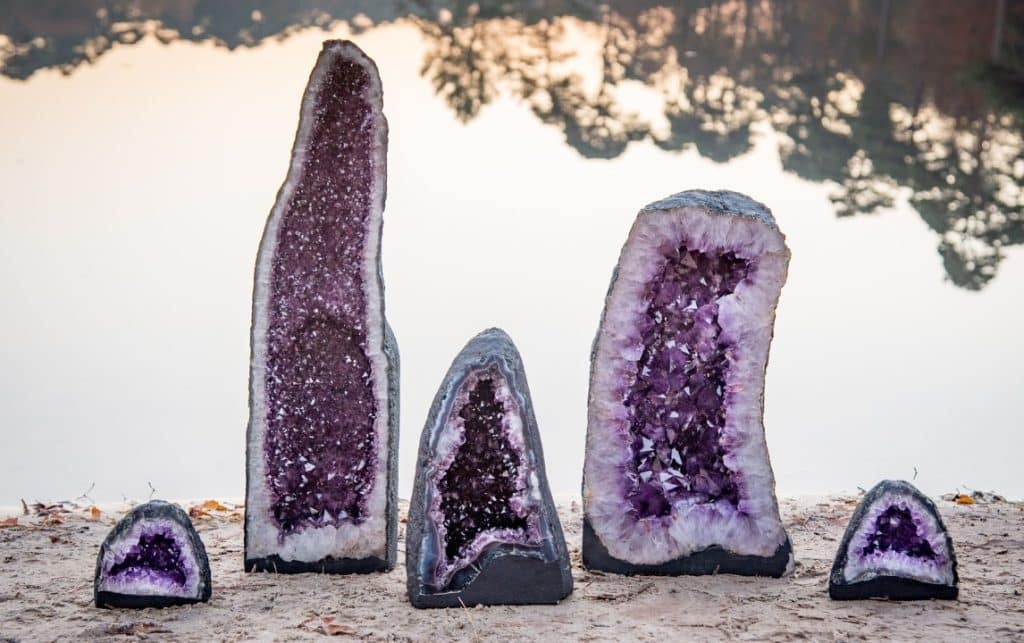
Smaller crystals can take under 10,000 years to form, but the massive crystals can take hundreds-of-thousands of years to grow.
Color
Amethyst’s famous purple color comes from the trace amounts of manganese and iron that were present during the process of its formation.
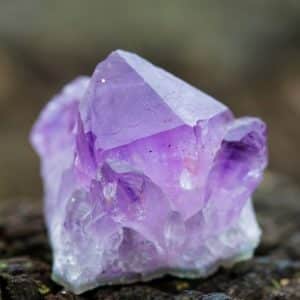
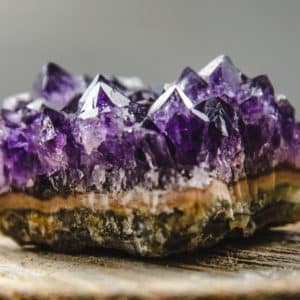
The different shades of purple depends on how much of each element was there at the time. If more iron was present, the amethyst is a darker shade of purple.
Technology
A really unique quality of crystal in general, is its naturally occurring “piezoelectricity”.
Piezoelectricity basically means that it’s able to generate an electric charge from pressure and latent heat. The oscillating frequency in crystals occurs at an exact rate and because of this it’s used in radar, satellite communications, watches, etc.
It is this same quality that makes it popular in the psychic realm. Crystals can receive, transmit and hold various types of energy.
IMPORTANT:
NEVER leave your Amethyst (or any) crystals in the sunlight or extreme heat – it will fade the color.
History and Legends
For Centuries, there have been many stories about amethyst’s ability to restore tranquility, balance the body, quiet the passions, and clear the mind, among other things.
Ancient China
Amethyst is associated with the Chinese Zodiac as the symbol of the Dragon which is still believed to be a good year to be born in (by the way – 2024 is the Year of the Dragon).
Amethyst is also used in Feng Shui to harmonize people with their environment and bring good fortune.
Ancient Greece
The Ancient Greeks believed that amethyst could prevent intoxication. The word “amethyst” is derived from the ancient Greek word “amethystos,” or “not intoxicated.”
There is a well-known and very old story that talks about Dionysus – the god of wine and revelry – who had a terrible reputation for his quick temper as well as a strong love of curses and revenge.
As the legend goes, Dionysus once grew extremely angry with a mortal and he vowed to unleash his wrath on the next human who crossed his path.
Unfortunately, that “next human” was Amethystos, a beautiful young maiden who was on her way to pay homage to the goddess Diana. When Dionysus spotted her, he summoned his two fierce guardian tigers to take his revenge out on her.
Amethystos, in her desperation, called out to Diana. The goddess, hearing her plea, transformed the maiden into a statue of pure clear shimmering quartz to protect her from the tigers’ claws.
When Dionysus witnessed her sudden transformation into a crystal statue, he felt an unusually deep guilt over his actions. In a rare moment of remorse, he poured his wine over the statue as an offering, which dyed the quartz a deep, purple hue.
From then on, the amethyst crystal served as a symbol of sobriety and clear headedness.
Ancient Egypt
Ancient Egyptians also regarded amethyst as a very powerful stone. It was thought to protect the wearer from evil and misfortune.
Amethyst was a favorite among the pharaohs. Carvings of gods, sacred animals, and scarabs have been found in many tombs.
One such example was found among the treasures in Tutankhamun’s tomb where archeologists found a bracelet with a large amethyst scarab on it which is now on display in the “Egypt Museum” in Cairo”
Believing that it protected the wearer from evil and misfortune, Egyptians created many amulets from it such as sacred animals, scarabs, and gods. Even their soldiers wore it for protection in battle.
Some of the oldest examples of its use in jewelry, are two beaded amethyst bracelets found by archeologists in the tomb of the 1st Dynasty’s King Djer. This find was dated to be from around 3000 BCE (5,000 years ago). These are also on display at the “Egypt Museum in Cairo”.
The Book of Exodus
The Bible mentions amethyst as being one of the gems that adorned the Breastplate of Aaron (again a protective gemstone).
The Bishop’s Stone
Many bishops wear a gold ring with a large oval amethyst set in it – some are carved, and some are not. This gemstone acts as a symbol of the bishop’s devotion to the Divine. The violet color represents the bishop’s compassion as well as his power.
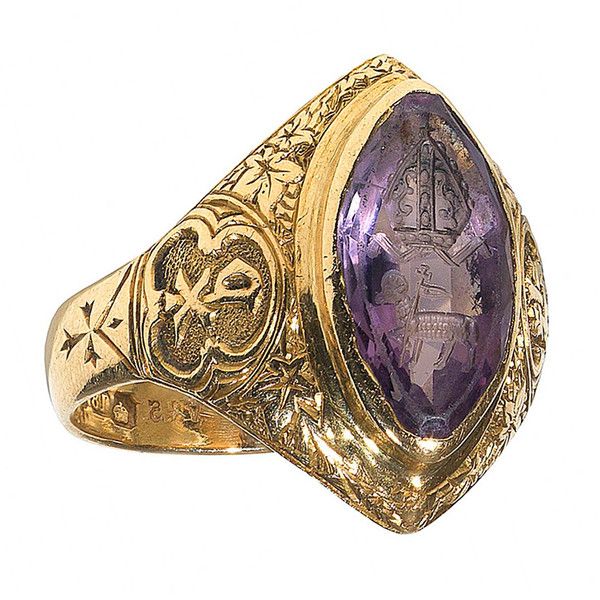
Rosaries
Rosaries have been made from amethyst due to the belief in its power to quiet passion. This is because it doesn’t sparkle with the fire of the diamond or fire opal, and therefore it’s believed to have a quieting effect and can bring serenity.
Medieval Period
Medieval Soldiers wore amethyst amulets for protection in battle, and to help keep them focused.
Leonardo da Vinci
Leonardo wrote that amethysts were able to protect against evil thoughts and quicken the intelligence. Also during this time (the Renaissance 1,300-1,500’s) it was generally used to help reduce toxicity, as well as balance the body and the mind.
Tibetan Buddhists
Tibetan Buddhists made prayer beads of amethyst that were called “Malas” to keep track of mantras that has been said.
Ancient Rome
The ancient Romans had a love affair with amethyst as well. There are many carved amethyst pieces called “intaglios” in private collections and museums, such as this one with the bust of Athena / Minerva (goddess of war and wisdom) from the 1st – 2nd century A.D.
Ancient Goblets
Ancient goblets that were carved from amethyst served a couple of purposes:
- It was thought to help keep the person from becoming intoxicated while drinking.
- And, a dark purple goblet would hopefully disguise the fact that the wine had been watered down.
Fast forward to today,
In modern times, this powerful gemstone is still revered for its calming properties
How can you harness this power in your everyday life?
During Meditation.
Sit quietly with an amethyst in your hand or placed nearby.
As you breathe deeply and focus on the stone’s energy, imagine it enveloping you like a purple mist – calming your thoughts, bringing clarity to your mind, and balancing your emotions.

Home Decor
Place an amethyst cluster in a shady spot your living room or workspace to create a serene environment.
Jewelry
Wear an amethyst ring, pendant, or bracelet as a constant reminder to stay balanced throughout the day.
Sleep Aid
Some people keep tumbled amethyst under their pillow to promote restful sleep and peaceful dreams.
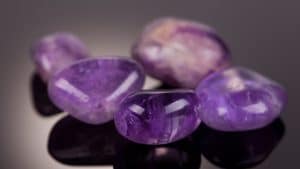
One theory surrounding the use of tumbled stones is that the smooth, rounded shapes are more conducive to the sleep state whereas the pointed crystals are used more while awake and conscious.
Here’s an extra tip
Try pairing amethyst with other healing stones for amplified benefits! For example:
- Combine Amethyst with Clear Quartz to enhance spiritual growth.
- Combine Amethyst with Rose Quartz to foster harmony AND love.
And finally…
Keep in mind, that the key to unlocking the power of amethyst lies in your intention – approach it with an open mind and a willing heart.
Let it be a symbol of your commitment to cultivating tranquility and balance in your life.

What’s New
-
Sale!

Purple Plush Queen Size Sherpa Blanket
Original price was: $53.55.$36.00Current price is: $36.00. -
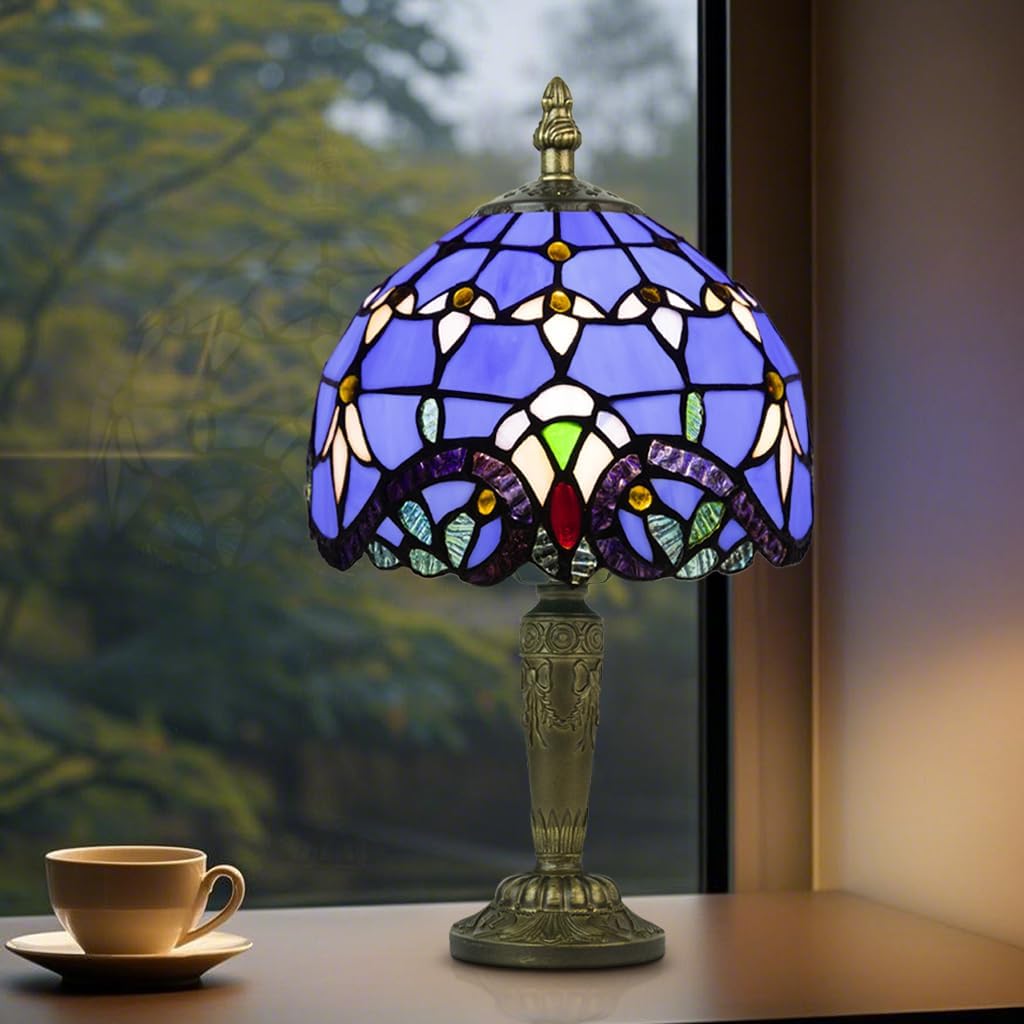
Small Purple Baroque Tiffany-Style Table Lamp
$61.00 -

Tufted Chesterfield Velvet Loveseat with Scrolled Arms, BlackBerry and Dark Brown
$429.00 -

Purple and Gold Marble 4 piece Shower Curtain Set
$23.00
Views: 189

